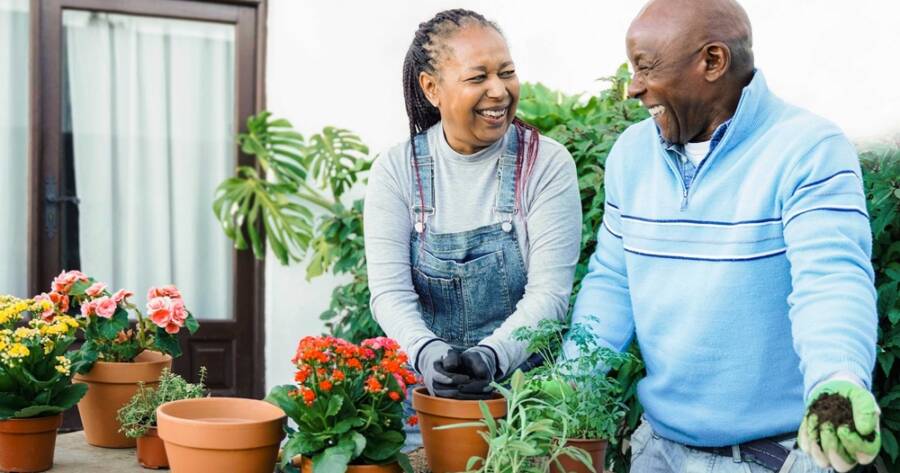The right hobby does more than pass the time–it brings a sense of purpose, joy, and mental stimulation. As we age, staying mentally engaged and emotionally fulfilled becomes even more important. Hobbies offer a healthy outlet for creativity, learning, and connection while supporting cognitive health and emotional balance. Whether it’s something brand new or a passion rediscovered, there’s a hobby out there waiting to add excitement and meaning to your everyday life.
Creative Arts That Stimulate the Brain
Activities like painting, drawing, knitting, or crafting aren’t just fun. They also promote focus, memory, and coordination. Engaging in creative arts gives the brain a gentle challenge while reducing stress and encouraging mindfulness. You don’t have to be an expert to benefit. It’s the act of creating, not the end result, that delivers the most joy.
These hobbies allow for personal expression and can be done at home or in group classes. Joining a local art class or crafting club adds a social element, which boosts emotional well-being even further. Whether you’re working with watercolors or yarn, tapping into creativity is a beautiful way to stay mentally active.
Puzzles, Games, and Brain Teasers
Challenging your brain with puzzles and games is a powerful way to stay sharp. Crosswords, Sudoku, jigsaw puzzles, and strategy games like chess or bridge all help boost memory, attention, and problem-solving skills. Even playing word or number games on a tablet can provide mental stimulation in a fun and accessible format.
These activities are also great for social connection. Weekly game nights with friends or online tournaments can provide both brain benefits and bonding opportunities. Best of all, puzzles and games can be enjoyed solo or with others, making them a flexible, brain-boosting pastime for any routine.
Gardening for Calm and Clarity
Gardening is a fulfilling hobby that engages the senses and brings a sense of accomplishment. Tending to plants promotes physical activity, encourages time outdoors, and supports a calm, mindful mindset. For many seniors, gardening provides purpose and joy, whether it’s growing vegetables, tending flowers, or simply caring for houseplants.
Even container gardens or indoor herb kits can bring the benefits of gardening to any living space. Studies show that being around plants reduces stress, enhances focus, and may even lower blood pressure. Plus, gardening teaches patience and nurtures curiosity, a perfect balance for body and brain.
Lifelong Learning and Online Classes
Learning something new is one of the best ways to keep the brain engaged. From language apps to community college courses, there are more opportunities than ever to explore new subjects. Lifelong learning stimulates critical thinking, improves memory, and may even delay age-related cognitive decline.
Many universities and organizations now offer online classes specifically designed for seniors. Whether you’re exploring history, cooking, writing, or even coding, there’s something out there to match your interests. Staying mentally curious and open to new knowledge keeps the brain flexible and makes life more interesting at any age.
Music, Movement, and Dance
Music stimulates the brain in powerful ways. Whether you’re playing an instrument, singing, or dancing, these activities support coordination, memory, and emotional expression. Seniors who engage in music-related hobbies often report improved mood and mental clarity.
Dancing also adds the benefit of physical movement, which helps with balance, flexibility, and heart health. From ballroom to line dancing, there are plenty of low-impact options that are both fun and social. Even just listening to favorite songs or learning to play a simple tune on a keyboard can brighten your day and lift your mind.
Volunteering and Community Involvement
Giving back is a hobby that feeds the soul while keeping the mind engaged. Volunteering offers structure, purpose, and meaningful interaction with others. Whether you’re mentoring youth, helping at a food bank, or organizing community events, these activities help strengthen cognitive and emotional health.
Being part of something bigger than yourself can improve self-esteem and create a sense of belonging. Many seniors find that volunteering not only benefits their community but also keeps their own minds active and hearts full. It’s a rewarding way to stay connected, stay sharp, and make a difference.
A Joyful, Engaged Life Starts Here
Hobbies bring color, comfort, and curiosity to daily life. They offer opportunities to connect with others, challenge the brain, and find joy in new experiences. Whether it’s solving puzzles, growing a garden, or learning something completely new, every activity adds value to your mental and emotional well-being. The key is to stay open, keep exploring, and choose hobbies that make you feel alive! And remember, you’re never too old to start something wonderful.

